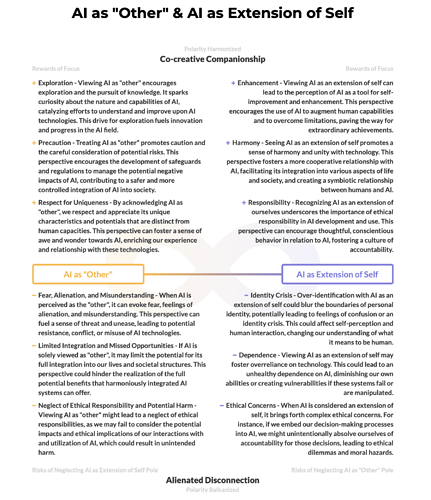https://integrallife.com/ontological-shock-the-accelerating-emergence-of-artificial-intelligence
Robb Smith joins co-hosts Bruce Alderman and Corey deVos in our first episode of Integral Life’s new AI series, where together they grapple with the profound “ontological shock” and societal transformation prompted by the emergence of AI, exploring its impact across education, personal lives, and organizations. They delve into the potential risks and benefits of AI, its role in discourse shaping, the evolving perceptions of AI, and the transformative potential of AI-aided technologies, all while weaving in spiritual insights and invoking a deeper understanding of our interconnectedness in this transformative age.
What is life? What is consciousness? What is the relationship between exterior complexity and interior experience? These sorts of big contemplative questions were once a luxury, a thing for misfit philosophers, integral nerds, and stoned dorm-room discussions. But now these questions have become absolutely central to the incredible social transformation that is taking place all around us.
The emergence of artificial intelligence in platforms such as ChatGPT and MidJourney represents the most significant ontological shock of our lifetimes, and perhaps even one of the most significant in the history of our species. The ground of our reality has radically and irrevocably shifted beneath our feet, and we are already feeling the tectonic plates rearranging themselves as society prepares for seismic changes in our collective behavior and methods of social self-organization.
The ontological ground has shifted, reality itself has changed, and now millions of people around the world are scrambling to update their epistemologies in real time in order to make sense of this new reality, to navigate this ever-accelerating change, and to strategize ways to avoid their own obsolescence.
The problem, of course, is that whenever new paradigms emerge, we then try to predict the consequences of the new paradigm by looking at it through the lens of the previous paradigm. But new paradigms aren’t simply a new way of looking at things — they are new ways of doing things, and those new kinds of “doing” result in new patterns of self-organization, new selection pressures, new attractors, and new flavors of chaos that laugh in the face of expert prognostications.
After all, if disruption was predictable, it would hardly be disruptive.
So, if the emergence of Artificial Intelligence has smashed our crystal balls to dust, is there anything meaningful at all that we can say about this new future that is now shaping itself on the horizon? How might integral ideas help change our understanding of artificial intelligence — and how might artificial intelligence change our understanding and embodiment of integral ideas?
And perhaps most importantly for us here at Integral Life, what sort of unique insights, skills, and attitudes does integral bring to the table?
Here are a few suggestions, just to get us started:
- Integral anticipates the dramatic consequences AI will have in all four quadrants — that is, we can anticipate unpredictable consequences in our LR technological, economic, political, and media systems; our UR efforts, behaviors, and thriving strategies; our LL relationships and cultural attitudes, permissions, and tolerances; and our UL perceptions, experiences, identities, and ongoing mental health.
- Integral understands that this new reality will not be seen, experienced, and understood the same way by everyone — that artificial intelligence truly represents a “hyperobject” that cannot be fully perceived or understood by a single perspective alone, regardless of how confident we might be that we “get it”. AI is a black box that will be perceived by individuals in very different ways, according to the perspectives and worldspaces available to them.
- Integral appreciates that the emergence of artificial intelligence is already evoking a number of very powerful emotional and even spiritual states of consciousness in people all around the world — from any number of existential anxieties to feelings of exhilarating wonder, creative reverie, and transcendent awe.
- Integral Life Practice helps each of us to overcome our resistance to change and develop the inner equanimity and anti-fragility required to ride this wave wherever it may take us, without getting dragged away by the undertow.
- Finally, Integral recognizes artificial intelligence as yet another expression in the ongoing emergence of Spirit in the world, a new aperture through which the universe may reflect on itself, contemplate its own existence, and remember the timeless wholeness of being.
In short, Integral Life remains the very best place to cultivate the skills needed to thrive during this period of accelerating change, and the perspectives required to make sense of the colossal transformations to come. As these not-quite human forms of intelligence continue to proliferate, Integral Life continues to be a place where you are free to be (mostly) fully human.
In our first episode of our new AI series we take a close look at this ongoing ontological shock we are now facing, and journey to the event horizon of this ongoing emergence — that point where all the products of human inquiry, intelligence, imagination, and social self-organization converge.
 )
)
